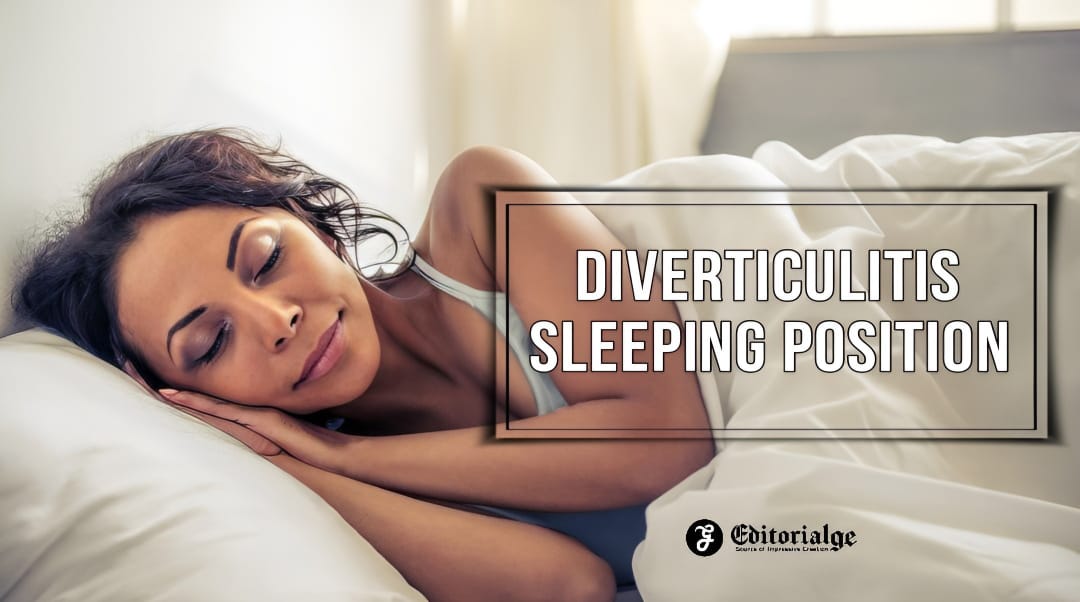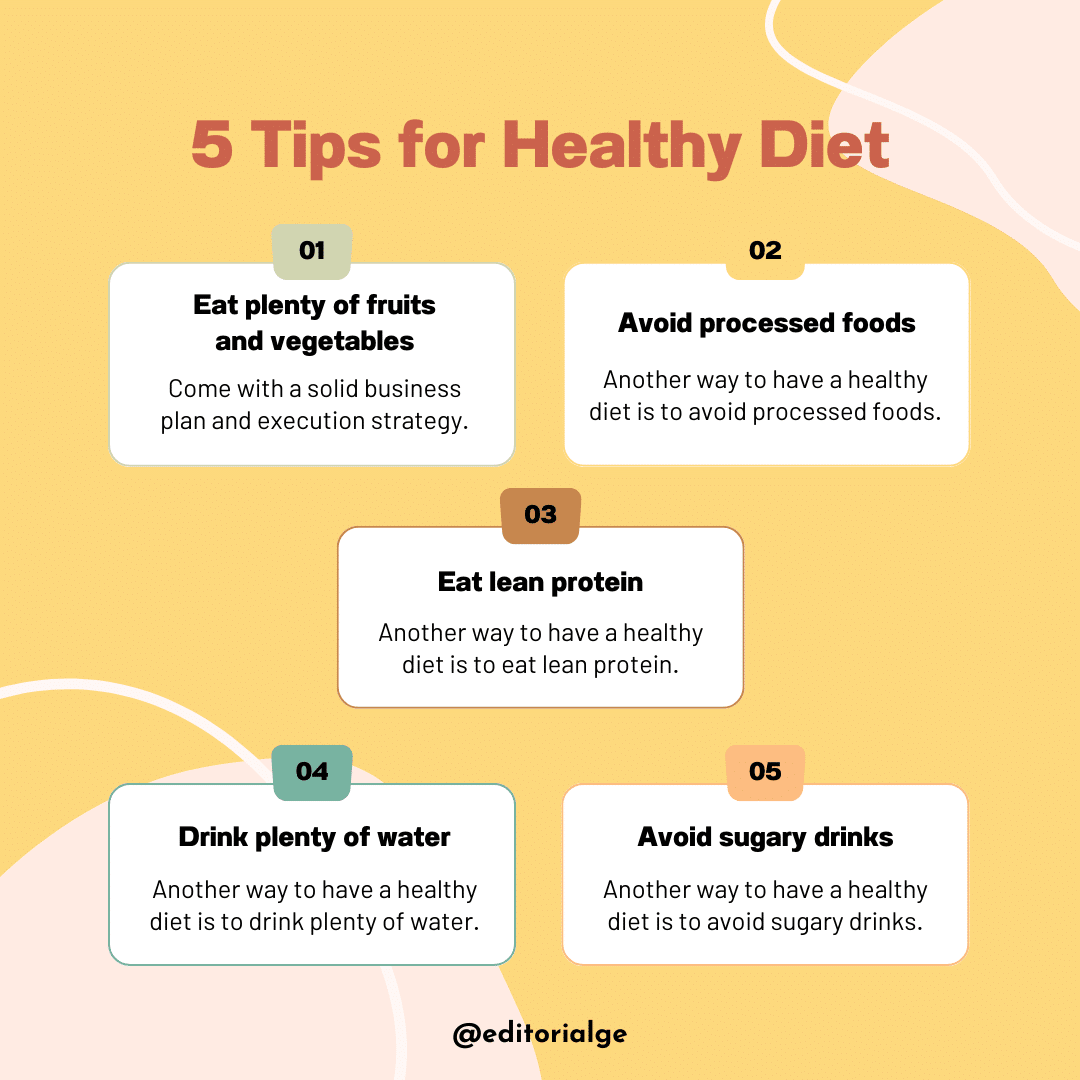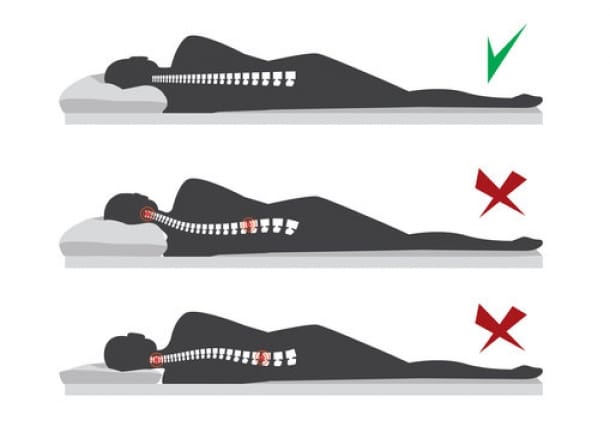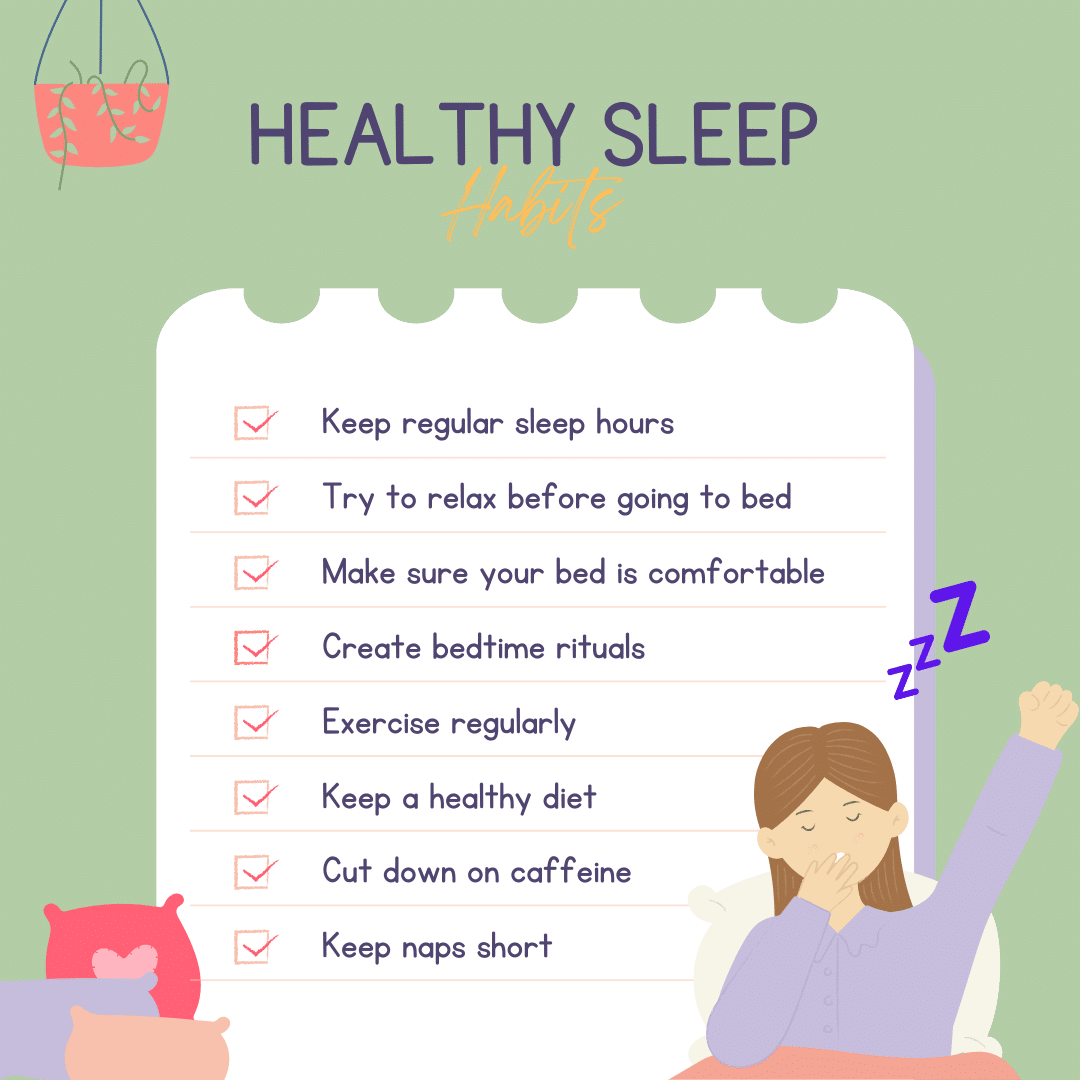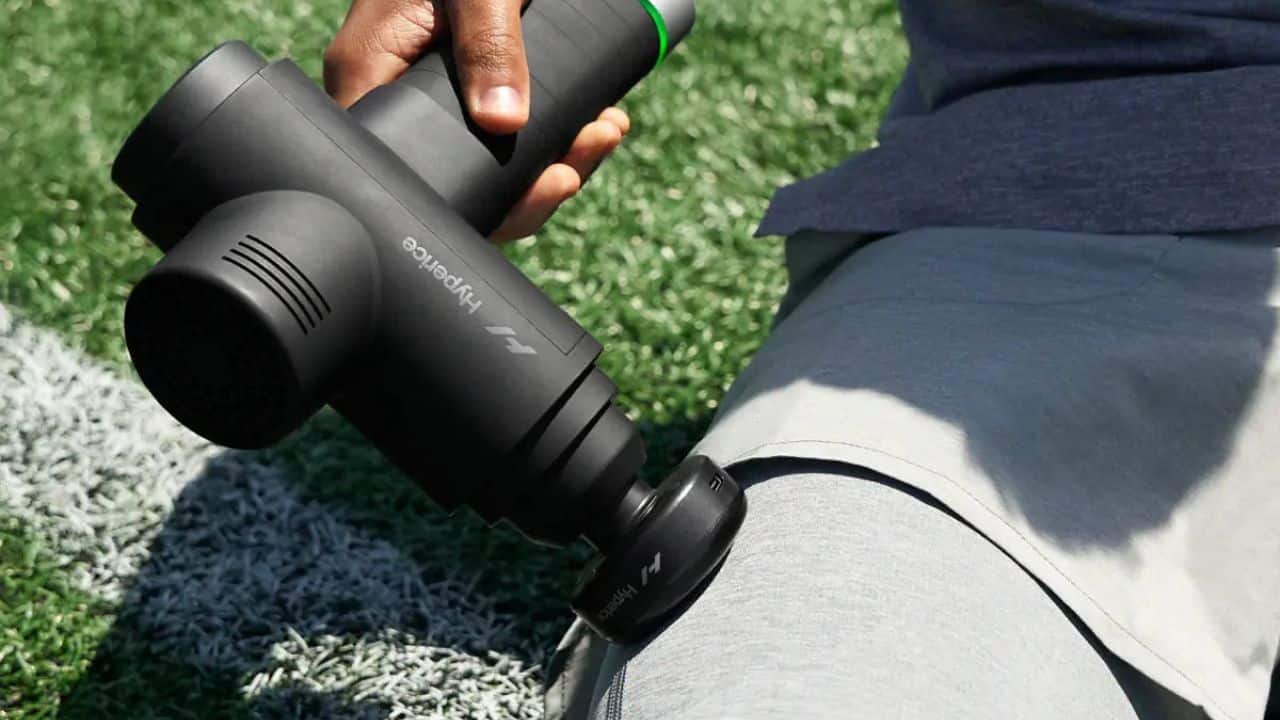Listen to the Podcast:
Sufficient sleep is a fundamental aspect of maintaining optimal health, particularly for individuals experiencing diverticulitis, where it assumes even greater significance. If one knows the benefits of diverticulitis sleeping position, he/she can deal with ease.
Adequate rest is beneficial for the body’s recovery and healing process, leading to the relief of discomfort related to the present medical condition.
This article highlights the significance of sleep and its influence on diverticulitis. It also provides recommendations on how to enhance your sleeping posture to alleviate symptoms.
Understanding Diverticulitis
Diverticulitis is a medical condition affecting the gastrointestinal tract, which is characterized by the inflammation or infection of small pouches known as diverticula that develop in the lining of the colon. Frequently encountered clinical manifestations comprise abdominal discomfort, pyrexia, emesis, and alterations in gastrointestinal transit.
The Role of Diet in Diverticulitis
Consuming a diet that lacks sufficient fiber and contains high amounts of refined foods may be a contributing factor in the development of diverticula. Adequate intake of dietary fiber is crucial in promoting regular bowel movements, which in turn lowers the likelihood of inflammation and infection in the diverticula.
Stress and Diverticulitis: The Connection
The exacerbation of diverticulitis symptoms can be attributed to stress, which has a significant impact on the digestive system and alters gut motility. The implementation of relaxation techniques and lifestyle modifications can potentially enhance digestion and alleviate flare-ups by managing stress.
Why Sleep Position Matters for Diverticulitis Sufferers?
The positioning of an individual during sleep can have a notable impact on their digestive system and the intensity of symptoms associated with diverticulitis. Certain body positions can promote better digestion and alleviate discomfort, while others can impede the process and worsen the pain.
Inadequate sleep can potentially lead to heightened inflammation within the body, thereby exacerbating symptoms associated with diverticulitis. Enhancing sleep quality and adopting appropriate sleeping positions can aid in mitigating inflammation and facilitating the healing process.
The Ideal Diverticulitis Sleeping Position
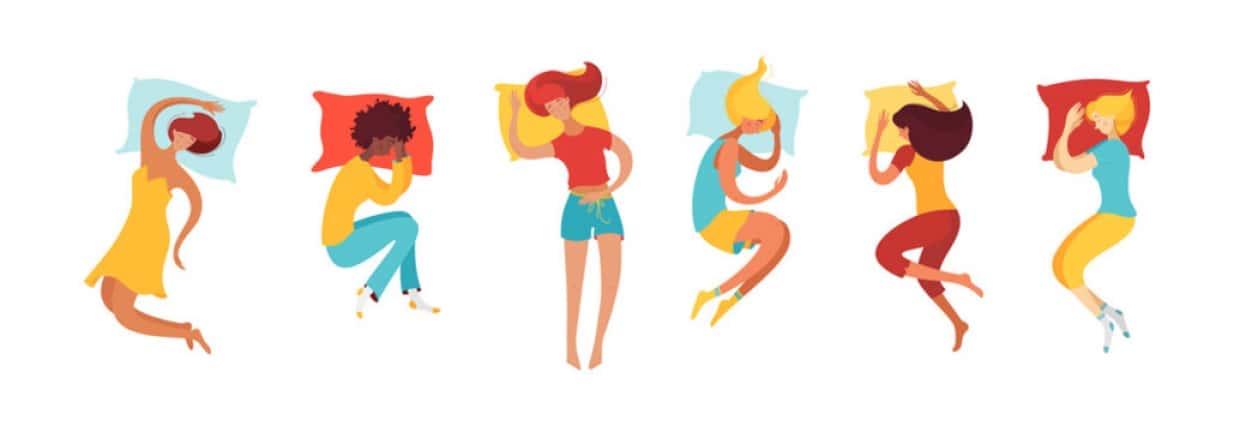
Left Side Sleeping
When you sleep on your left side, gravity helps move food through your digestive tract, which is best for digestion. This position can also relieve pain by putting less pressure on the colon.
To sleep on your left side, just lay down on your left side and support your head and neck with a pillow. Put a pillow between your knees to make yourself more comfortable and keep your spine straight.
The Semi-Fowler’s Position: Elevated Upper Body
In this position, the upper body is raised at an angle of 30 to 45 degrees, which can help relieve pressure on the colon and make digestion better. Use pillows or a bed that can be raised or lowered to get the right height.
The Knee-Chest Position
In this position, people lie on their backs with their knees bent and their chests on pillows. This position can help relieve pain in the abdomen by taking the pressure off of it.
On Your Back
Some people sleep better on their backs with a pillow under their legs. It also makes the blood flow better and relieves pressure on the lower abdomen, which is where diverticula usually form.
It’s fine if you like to sleep on your side instead of your back. But don’t sleep on your stomach. Diverticulitis can get worse when you sleep on your stomach because it keeps the intestines twisted, which makes the condition worse.
What Is the Healthiest Sleeping Position?
Different people have different healthy sleeping positions depending on how their health is right now. So, there is no one right answer that works for everyone. But some sleeping positions are better than others for getting a good night’s rest. Want to know what these things are? Find out by reading on!
If you have stomach pain, the best way to sleep is on your side, specifically on your left side. What’s going on? This is because it improves the health of the gut by making the blood flow faster and lowering the pressure.
When you sleep on your left side, the feces have a better chance of moving through your colon. This makes it more likely that you’ll go to the bathroom first thing in the morning. This makes it less likely that you will become constipated, which is a common cause of diverticulitis.
People often sleep on their backs because it makes them feel better. This gives your spine the best possible alignment and takes the pressure off your organs.
The Role of Sleep Hygiene in Diverticulitis Management
- Setting up a regular schedule for when you sleep and when you wake up can help you sleep better and keep your digestion in check, which can reduce the risk of diverticulitis flare-ups.
- Limiting your exposure to screens and other sources of blue light in the evening can help your body make more melatonin, which helps you sleep well and keeps your digestive system healthy.
- Diverticulitis patients need a supportive and comfortable mattress because it can relieve pressure on the abdomen and help keep the spine in the right place. Think about mattresses with different levels of firmness so that everyone can find one they like.
- Breathable and moisture-wicking bedding can help keep your body temperature stable while you sleep, and supportive pillows can help your chosen sleeping position work better.
Relaxation Techniques for Improved Sleep Quality
You could try 2 relaxation techniques for improving the quality of your sleep. The techniques are:
Deep Breathing Exercises for Stress Relief
Exercises that focus on deep breathing can help reduce stress and promote relaxation, which in turn can help the body get ready for a night of restful sleep.
Progressive Muscle Relaxation for Total Body Relaxation
The goal of progressive muscle relaxation is to alleviate tension and bring on a state of relaxation that makes it easier to fall asleep. This is accomplished by systematically contracting and then relaxing different groups of muscles.
Low-Impact Exercises for Diverticulitis Patients
Walking, swimming, and yoga are all examples of low-impact, gentle forms of exercise that can help improve diverticulitis symptoms and promote better sleep. Individuals’ needs and preferences should be taken into consideration when designing an exercise program.
It is recommended to encourage physical activity earlier in the day or during the late afternoon to enhance sleep quality. It is advised to avoid exercising too close to bedtime as it may interfere with the ability to fall asleep.
When to Seek Medical Help for Sleep Issues?
If the patient is still experiencing sleep disturbances or worsening diverticulitis symptoms despite attempting different sleep positions, it is recommended to seek medical attention from a healthcare professional for further assessment.
We recommend seeking guidance from your provider regarding appropriate sleep positions, lifestyle adjustments, and potential medical interventions to enhance sleep quality and manage diverticulitis.
Frequently Asked Questions: Diverticulitis Sleeping Position
Below we have discussed some of the commonly asked questions on diverticulitis and diverticulitis sleeping position.
Does laying down help diverticulitis?
The treatment plan for mild diverticulitis infection typically involves bed rest, stool softeners, a liquid diet, antibiotics to combat the infection, and in some cases, antispasmodic drugs.
Can you live a normal life with diverticulitis?
The majority of patients are likely to remain free of complications throughout their lifespan. It is important to note that there is a potential for complications, and there are strategies available to mitigate such risks. It is recommended to increase your dietary fiber intake for better health.
Which sleeping position is best for digestion?
One recommended sleeping position for optimal digestion is lying on your left side with a pillow placed between your knees. This promotes proper blood flow regulation and helps alleviate pressure on the internal organs. In addition, it facilitates regular bowel movements, thereby decreasing the likelihood of constipation and diverticulitis.
What is the best home treatment for diverticulitis?
The standard treatment for mild cases of diverticulitis involves a combination of antibiotics and a low-fiber diet. Alternatively, patients may be advised to undergo a period of fasting followed by a clear liquid diet, before transitioning to a low-fiber diet as their condition improves. Hospitalization is usually necessary for cases that are more severe.
Does diverticulitis cause gas?
The clinical presentation of diverticulitis is characterized by acute and severe symptoms that typically have an abrupt onset, although they may progressively worsen over a period of several days. The patient reports tenderness, typically localized to the left lower quadrant of the abdomen. Symptoms of gastrointestinal discomfort such as bloating or gas may be present.
Final Words
People with diverticulitis must get a good night’s sleep because it helps them heal and makes them feel better. You can improve the quality of your sleep and your overall health by sleeping in the right position, using good sleep hygiene, and making any necessary changes to your lifestyle. Don’t be afraid to talk to your healthcare provider to get personalized advice and help on your way to better sleep and better management of diverticulitis.
Disclaimer: This content is for informational purposes only and does not replace professional medical advice, diagnosis, or treatment. This information is not comprehensive and should not be used to make health or well-being decisions. Consult a qualified healthcare professional with questions about a medical condition, treatment options, or health regimen. This website or the content should never replace professional medical advice.


